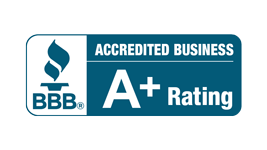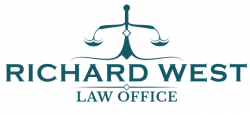Ohio Chapter 7 Bankruptcy Attorney
Financial strain can take its toll on anyone, especially those living in Ohio. If you are becoming deeper in debt, Bankruptcy Chapter 7 – may be your best option for debt relief.
More people file Chapter 7 Bankruptcy than any other form of bankruptcy. It is a powerful and effective tool for personal financial recovery. Most of the negative associations people have about filing this type of bankruptcy are either not true or are grossly overblown. More people should file Chapter 7 than actually do.
Don’t believe everything (most) of what you read on the internet about Chapter 7 Bankruptcy. Chapter 7 bankruptcy is a powerful tool but, like any serious financial matter, you need to consult an expert before you make a move.
Most people qualify for some kind of bankruptcy relief. In order to qualify for this type of bankruptcy, you must either have income below the median income for your family size, or, if your income is above that limit, you need to pass the means test, or demonstrate “special circumstances.”

When to File Chapter 7 Bankruptcy?
In over 35 years of practice, I can confidently say that most should file bankruptcy long before they actively start looking into it. Their reasons are many, but mostly unfounded.
Most people misunderstand bankruptcy, and fear unpleasant consequences they imagine that will happen to them if they file. So they refuse to even consider the bankruptcy option, until they have no choice.
Don’t wait until you experience the many “warning signs of bankruptcy.” As the old saying goes, “If you think you have a problem, then you probably DO have a problem!” Yet, most people wait until they have exhausted their savings and made poor financial decisions designed to avoid the problems they mistakenly believe bankruptcy will cause them. This is tragic.
If you’re experiencing financial stress, don’t wait until you start fighting with loved ones over money and losing sleep. You need to start looking at all options, including Chapter 7, now.
Legal Services
Quick Reference
Get Your Free Consultation And Review All Your Options
Start the bankruptcy recovery process now with a free consultation after completing our online evaluation form.
Useful Calculators
Here are two helpful calculators for managing your debt repayments and Chapter 13 commitments.

Before you File Chapter 7 Bankruptcy
Before doing anything, get a good understanding of your finances. When you see a credit counselor, debt management office or attorney, you need a complete list of all your debts and assets. You’ll need to have proof of your income as well. Write all of this down.
Keep an open mind. Too many people fail to get the financial recovery they need, and could easily have, because they refuse to consider options with an open mind. They overlook effective tools and strategies because they stubbornly cling to false notions about bankruptcy which, in my experience, often prove to be totally untrue, or would not apply to their situation.
Resolve to investigate all options, and get second opinions as needed. It’s a good idea, in most cases, to talk with credit counselors, debt management companies and several attorneys before making any final decision. Most offer free consultations, and most offer telephone consultations.
The Pros and Cons of Filing Chapter 7 Bankruptcy
Like most things in life, nothing is all good or bad. There are pros and cons in filing Chapter 7 bankruptcy in Ohio. It’s a major financial decision, and one that can change your life for the better in a big, big way.
Pros of Chapter 7
- You will keep all (or most) of your property
- It is possible to recover credit quickly if you have the right program.
- You can keep your car, home and other things you are paying for now.
- It stops most collections, including lawsuits and garnishment, instantly.
Cons of Chapter 7
- It will probably keep you from getting a home mortgage for 2 – 3 years.
- It may cause your credit score to drop, initially, but you can recover quickly.
- You won’t be able to file another chapter 7 for 8 years.
- If you make a mistake, you cannot dismiss your case. It’s irreversible.
Does This Mean I Should File for Chapter 7?
Just because you qualify for Chapter 7 Bankruptcy in Ohio, does not mean it’s the best option for you. Too many people mistakenly believe that Chapter 7 is better than Chapter 13.
And too many attorneys fail to adequately weigh the pros and cons of Chapter 13 vs. Chapter 7 with their clients before making a final decision on which chapter to file.
As a recognized Ohio Consumer Bankruptcy Specialist, I know that many people who file Chapter 7 would pay less to creditors in a Chapter 13, and their overall financial recovery would have been more complete, if they had instead filed Chapter 13.
And, for some, bankruptcy is NOT the best option. As a certified credit counselor, I regularly recommend NOT filing bankruptcy for some clients, either because it would harm them or their family members, or it would result in loss of property or create some other undesirable outcome.
Conclusion
Due to misunderstanding, many consumers suffer needless financial and personal loss because they fail to consider Chapter 7.
Chapter 7 Bankruptcy is a powerful tool for financial recovery. More people should file Chapter 7 than do. And, many people who file Chapter 7 recover their credit very quickly, and achieve lasting financial success.
Bankruptcy is not an indication of personal failure. Henry Ford and Walt Disney filed bankruptcy, among many famous people. If you are suffering financial stress, you should carefully evaluate all options, including Chapter 7, and then take action.
What Debts are Discharged in Chapter 7?
Chapter 7 will discharge most of your debts. You often want to keep some debts, like your car and your home. Bankruptcy will wipe out medical bills, credit cards, personal loans and similar debts.
Dischargeable Debts
These are some of the common debts that maybe discharged under Chapter 7 Bankruptcy in Ohio:
- Medical Bills
- Credit Card Debt
- Unsecured Debt
- Utility Bills
- Dishonored Checks
- Money Owed Under Lease Agreements (Past Due Rent)
- Social Security Overpayments
- Veteran Assistance Loans
Non-Dischargeable Debts
These are some of the common debts that can not be discharged under Chapter 7 Bankruptcy in Ohio:
- Student Loans
- Child Support
- Alimony
- Court Fines and Penalties
- Taxes
- Homeowners Association Fees
- Personal Injury Involving DUI
What Happens When You File Bankruptcy in Ohio?
Once you file, you can’t back out! (BEWARE)
Filing a Chapter 7 Bankruptcy commits your assets to the bankruptcy system irreversibly. This is important, because it means that if you, or your attorney, makes a mistake, you can’t dismiss the case. You’re stuck.
Regularly, I see assets lost because of a failure to properly detect a problem in a case. For example, not checking a lien date on a car purchased before filing could cause you to lose the car.
Failing to investigate and properly analyze seemingly small details can result in huge losses for Chapter 7 filers. That’s why it’s so dangerous to try to file without an experienced specialist. Bankruptcy is a specialty practice, not appropriate for general practice lawyers or novices. The U.S. Courts website advises against trying to file without an attorney. https://www.uscourts.gov/services-forms/bankruptcy/filing-without-attorney
Prior filings

How to Prepare for a Chapter 7 in Ohio
Chapter 7 Checklist
Prior to Filing for Chapter 7
What you will need to file Chapter 7
- An approved form of Identification
- Proof of Social Security #
- A number of documents are required, tax returns, income proof, etc.
- Provide complete & accurate information for petition
Post Filing for Chapter 7
What to do after filing for Chapter 7
- Complete the financial management course
- Prepare for your 341 meeting of creditors
- Attend your 341 meeting of creditors.
- Our Clients begin our unique credit recovery course
- Our program typically gets 650 - 799 FICO in a year!
Chapter 7 Bankruptcy Timeline
Ready? Get on the Road to Bankruptcy Recovery
We are still open for remote filing and remote consultations during the pandemic. All consultations are free and there is no catch. We only work with clients who want to work with us. Nothing high-pressure. We look forward to assisting you.

